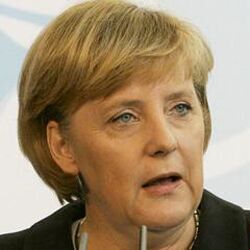
German Economy Full Speed Ahead
German-engineered products are once again some of the most sought-after products in the world, and Germany is reaping profits by shipping them out. The world’s largest exporter experienced a 2.7 percent growth in gross domestic product in 2006, its highest in six years—and higher than the average growth in the eurozone.
The sudden rise of Germany’s economy is credited mainly to exports, corporate investment and the increased global demand for German goods. Germany’s exports grew 12.5 percent in 2006, the best growth since 2000; the nation shipped almost 25 percent more goods to Russia and China alone. Germany now exports more to the former nations of the Soviet Union than it does to the United States. It ships five times more goods to nations within Europe than to the United States.
Another positive indicator for Germany’s economy is the unemployment rate: For the fist time since 2002, it is in the single digits. The rate dropped to 9.8 percent this spring and is expected to keep falling. This indicator demonstrates Germany’s independence from the U.S. economy. “The simple fact that the German labor market is turning, that you have genuine job creation, shows that this is a genuine German renaissance, one that is independent of the U.S.,” said Nicolas Sobczak, senior European economist at Goldman Sachs in Paris.
German business is booming, investor confidence is climbing and productivity is up—all good signs for Germany’s economy.
“Employment is up, and the overhaul of public finances is moving ahead,” said German Chancellor Angela Merkel during an opening speech at a technology fair in Hanover, Germany, a month ago. “Germany has finally found its role again as the motor for growth in the eurozone” (Associated Press, March 14). Merkel confirmed her government’s high-tech strategy, a strategy that includes investing more than $1.5 billion in information and technology by 2009.
Germany’s export business is driven largely by its global niche products—highly sophisticated technological tools that enjoy booming worldwide demand. Businesses that offer these rarified products don’t compete with nations such as China, which produces many less-sophisticated goods at much cheaper costs than can its Western counterparts. The demand for these higher-end products is growing, even though the goods have become more expensive as the euro increases in value.
The European Union’s success as a dominant global superstate that can compete with the U.S. depends on Europe becoming less dependent upon the U.S. economy and more competitive in the world economy. Germany is proving itself to be just that—and it accounts for a fifth of the economic activity in the EU.
Already other nations are benefiting from Germany’s booming economy. In 2006, Germany’s exports to Poland rose 29 percent while imports from Poland rose 23 percent. Other countries in Europe need an economy like Germany’s to fuel their own growth.
Germany is still modestly dependent on the U.S. economy. If the U.S. economy takes a turn for the worse, which we expect it to do, Germany will still have to endure the effects. However, if it can turn a stagnant economy into the world’s third largest economy, it can certainly bounce back from any effects from a U.S. economic collapse, and all the more quickly as it becomes less dependent on it.
While it may not be evident now, there is coming a time when a German-led EU will dominate the entire Western world. For more information, request Germany and the Holy Roman Empire.
